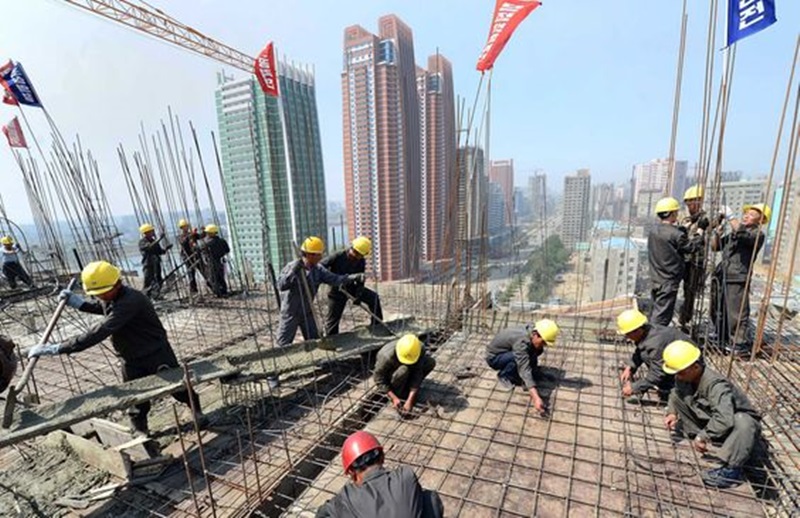
Pyongyang’s urban landscape has been undergoing rapid change with massive construction and redevelopment projects launched since Kim Jong Un’s rise to power. Ryomyong Street and other sights in the city reportedly impressed the South Korean delegation that visited Pyongyang last year for the Pyongyang summit as they traveled from Sunan Airport to the Paek Hwa Won Guesthouse.
Apartment construction continues in earnest in Pyongyang’s Potanggang, Pyongchon, and Central districts following the completion of Ryomyong Street, which connects Kumsusan Palace of the Sun and the Tower of Eternal Life, and Mirae (future) Scientists Street near the Taedong River. The Revolutionary Martyrs Cemetery located in Pyongyang’s Youth Park has even been relocated to make room for another massive apartment complex.
While apartment construction is a major feature of the modernization process occurring in Pyongyang, these projects have also been marred by a steady stream of work-related accidents.
“Two members of the Korean People’s Internal Security Forces 8th General Bureau’s construction unit, which is tasked with apartment construction in Pyongyang’s Pyongchon District, were killed after a wall in the basement of the building collapsed,” a source in Pyongyang told Daily NK on January 8.
The incident occurred while the unit was constructing a new apartment building in Pyongchon District. The workers were reportedly plastering the walls of the building when one of the walls suddenly collapsed, killing them.
According to multiple sources in Pyongyang, the incident was due to an overemphasis on speed throughout the construction process. The construction unit was not adequately supplied with materials or equipment and entered the building without waiting for the cement to dry properly.
The head manager of the construction site was demoted for six months as a result of the incident, and other managers have been handed time in disciplinary labor centers (rodong dallyeondae).
An apartment collapse in Pyongchon District in May 2012 led to the deaths of more than 100 people. Among those who apologized directly to the victims’ families were Choe Pu Il, North Korea’s minister of People’s Security, and Sonu Hyong Chol, general officer of the Korean People’s Internal Security Forces. The construction of that apartment building was led by the People’s Internal Security Force’s 7th General Bureau.
Just a week after that collapse, however, Kim Jong Un again emphasized the importance of “speed battles” during his visit to a construction site for apartments being built for Kimchaek University of Technology educators. The regime continues to emphasize speed over safety in its development projects, regardless of the consequences.
“Despite their frequent occurrence, the North Korean authorities consider such accidents to be ‘inevitable.’ They also routinely place the entire blame for such incidents on the construction site managers, rather than dealing with the fundamental causes,” a separate source in Pyongyang said.
“Local residents are saddened at the deaths of the soldiers who remind them of their own children and who were working without eating properly. They just feel sorry for those that died because they can’t do anything to prevent such incidents from happening again. There’s no way for them to change the state’s approach to safety.”


















